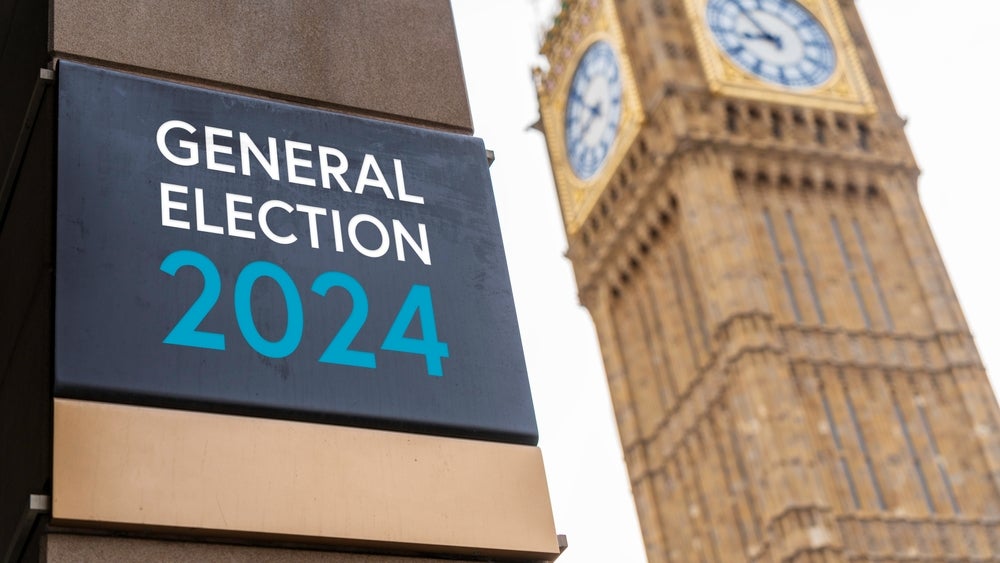
The party manifestos contain measures designed to improve the financing and operating environment for SMEs. But are they enough? Jeremy Weltman reports.
Research by Novuna Business Finance finds that small businesses want government to address the barriers to growth, which 80% of respondents consider to be more pervasive than at the last election.
All of the parties are pitching ideas to address this. The LibDems want to empower SMEs to create new local jobs by abolishing business rates and replacing them with a Commercial Landowner Levy to help high streets. It would also expand the role of the British Business Bank.
The Greens are pledging to set up regional mutual banks to drive investment in decarbonisation and local economic sustainability. There would be £2bn per year of grant funding for local authorities to help businesses decarbonise, and community ownership would be encouraged through greater access to government funding.
Reform UK would introduce tax cuts for small businesses, including a corporation tax-free allowance of £100k on profits and lifting the threshold for VAT registration from £90k to £150k. The party would also abolish business rates for SMEs on the high street, paid for by a 4% online delivery tax for large multinationals.
Conservative plans
The two main parties have set out more comprehensive strategies aimed at SMEs.
The Conservatives want to cut national insurance contributions (NICs) from 12% at the beginning of this year to 6% by 2027, and abolish NICs for virtually all self-employed workers by the end of the next Parliament. There are plans to increase the VAT threshold to £90,000, and review options to smooth the cut-off point. Increases in capital gains tax would be scrapped, with business asset disposal relief protecting small businesses.
The party mentions it will seize the benefits of Brexit by signing further trade deals, speeding up infrastructure and cutting red tape for business. That involves lifting the employee threshold to be a medium-sized enterprise, saving on time-consuming and costly administration.
Julian Rose, director at Asset Finance Policy Ltd says this sensible adjustment was previously announced in March, and includes increasing all three of the micro, small and medium-sized company thresholds. “It's useful for some regulation, where different rules apply to different sizes of businesses, but often the same rules apply to all SMEs,” he says.
Rose adds that in addition to this, it would be useful to review regulations for small companies, checking which rules were designed specifically for them. “Too often, SMEs must use an adapted version of rules originally designed for the largest companies, for example, the recent decision to extend IFRS 16 lease accounting rules from large companies to all SMEs,” he says.
Tina McKenzie, chair of the Federation of Small Businesses (FSB), says, “To see a major party pledge to scrap self-employed NICs within the next five years is an important moment as a bold and welcome move to encourage entrepreneurship.”
She acknowledges the Conservatives trying to avoid the VAT “cliff-edge” that the FSB has been campaigning for. She also welcomes the capital gains tax and business asset disposal relief, stating that “for many small firms their business is also their pension and it's right not to tax people all over again when they come to sell.”
Simon Goldie, director of business finance at the Finance & Leasing Association (FLA) adds that the Conservatives’ commitment to include leasing in the full expensing regime would be a “major win for those businesses seeking to invest.”
Comparing with Labour
The Labour Party is focused on introducing new regulations and regulatory reforms, building on its Plan for Small Business released in November 2023. It includes plans to change regulations to accelerate the rollout of banking hubs to ensure small businesses have access to banking services on the high street and can safely deposit cash.
A Labour review into start-ups and scale-ups has identified problems with access to finance. As a result, Labour plans to unlock the supply of capital for technology-intensive, early stage businesses, making sure that institutional investors and venture capitalists are best placed to invest, alongside the British Business Bank, which will be reformed to better support SMEs and regional growth.
Goldie notes that in Labour's manifesto, the British Business Bank is handed a regional remit. “This could improve access to finance in areas outside the South-East,” he says, adding that, “while there's no standalone mention of leasing in their plans, there is agreement to review business taxation, which could be the first step towards the inclusion of leasing in the full expensing regime.”
The Conservatives’ plan to utilise the British Business Bank with the private sector to mobilise a £250 million Invest in Women Fund for female entrepreneurs. It is also the only party to specifically refer to the Basel III capital requirements by pledging to ensure they do not inhibit lending to SMEs.
Goldie says the commitment to look again at changes to Basel III “means that warnings have been heeded about the impact that this ill-conceived change could have on the availability of funding.”
UK General Election 2024
Labour aims to stamp out the late payment of invoices to small businesses (valued at a staggering £20 billion), by requiring large businesses to better report on their payment practices during their annual statement audit processes, to expose late payers. The Conservatives, by contrast, say they will improve enforcement of the Prompt Payment Code.
“Poor payment practices by big businesses towards their smaller suppliers is a widespread problem which anyone wishing to form the next government should seek to stamp out, in the interests of both fairness and more predictable cashflow which can be used for investment,” says McKenzie.
She adds that “it is encouraging to see this problem recognised in the Conservative manifesto, and extending the powers of the Small Business Commissioner would be a helpful part of the solution.”
Labour has plans to open up competition to public contracts, making it fairer for small businesses. The Conservatives have also targeted this to ensure that procurement focuses on SMEs, where possible, in local economies.
Labour will boost small business exports by publishing a trade strategy and delivering clear advice to help new businesses exporting, by working alongside the FSB on a Small Business Export Taskforce. It is also planning to improve on the Trade and Cooperation Agreement when it comes up for renewal in 2025.
The manifesto pledges to address skills shortages by creating a new body, Skills England, working with local industry to ensure local people have the skills they want, including new Technical Excellence Colleges. There are also plans to make Britain a clean energy superpower, cutting energy bills for small businesses.
It wants to lead the world in sustainable finance, by making the UK a global hub for green finance activity, with a green finance regulatory framework and partnering with the financial services sector to support the decarbonisation of our homes.
Rose says this sounds like the original objectives of the Government's Green Investment Bank launched in 2012, and sold to Macquarie in 2017, where it focuses on larger infrastructure projects. “Unprecedented amounts of green finance for homes and businesses will be needed over the next 10 years, so it makes sense for this to be achieved through a partnership between government and lenders.”
He says it could be improved by avoiding the trap of limiting 'green finance' to a narrow range of obviously green options, such as domestic solar installations. “What's needed over the next five years is predominantly 'transition finance' rather than 'green finance'. That's supporting businesses to redesign their operations to reduce emissions, even if the assets being used might not be manifestly green,” he says.
General Election 2024: motor industry calls for clarity on political pledges
How the EU elections may affect its leadership of the energy transition







